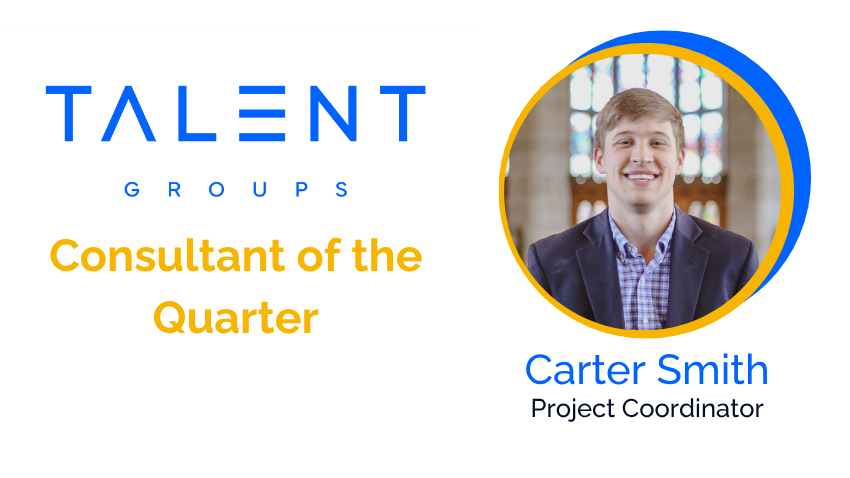Which Different Types Of Interviews Are Best For Your Company?
Though it’s not a perfect science, a candidate’s past actions help employers predict what they’ll do in the future. That’s why behavioral questions dominate most job interviews.
A behavioral interview question asks for examples from previous experiences or jobs to verify the traits a candidate claims. You’ve probably asked a few questions like this:
“Give an example of a time when you failed and explain how you responded.”
“How did you bring up a difficult issue to your boss?”
“What do you do when faced with new challenges?”
The only shortcoming of this kind of questioning is that candidate responses are usually a bit more canned. Smart candidates have rehearsed certain stories down to a science. For better insight into the ways they’ll act into the future, you may need to investigate beyond a candidate’s tangible experiences.
SITUATIONAL INTERVIEWS
Employee job satisfaction depends in part on novelty. Does the work feel new? Refreshing? Challenging? If not, they won’t stay.
That’s why a conventional rule for job seekers is to follow the 70/30 rule: find a job where 70 percent of the work is familiar territory and 30 percent offers learning opportunities. In response, businesses need to use situational interview questions to gauge how well prepared candidates are for the unknown.
Situational interview question deal in hypotheticals. Candidates are given an obstacle and must solve it out loud. Questions vary but tend to follow this formula:
“A critical database crashes and sets your project back a few months? How do you tell clients?”
“One of your coworkers is ignoring a major problem in client-facing software. How do you handle the situation?”
“Your long-time client contact just left for greener pastures and the new department head wants to reevaluate their options. How do you retain that client’s business?
Questions like these require a bit more improvisation and provide a more authentic look at the candidate. As most of these questions will be tailored to the position itself and your company’s previous challenges, a candidate’s response can give a quick measurement as to whether or not he or she is a good fit.
Additionally, these questions test problem-solving skills in real-time, though are more effective when paired with another type of questioning.
CASE INTERVIEWS
Quantitative questions are everywhere. How many users can a server handle? What can be done to double compression rates? Can a specific process triple productivity? Left brain challenges abound in the data driven IT world. That’s why case interview questions are so important when reviewing a candidate.
Case interview questions test a candidate’s analytical side and ability to run through problem-solving steps on the spot. Practical case questions tend to adhere to the following formula:
“How would you help our mobile development team increase output by 50% in one year?”
“One of your clients is a $500 million a year medical services provider. Last year, they lost $10 million due to impractical software. How would you turn around that loss?”
On the offbeat side, there’s no better place to look for quirky case questions than Silicon Valley. Google, Zappos, and innovators go wild with these types of questions:
This manages to show whether or not a candidate can quickly work through complex quantitative information. Plus, case questions can help to evaluate how quickly a candidate can calculate figures and apply them in more than an abstract capacity.
PRESENTATIONAL INTERVIEWS
Presentation interview questions challenge candidates to complete a presentation on a limited timetable. A candidate is presented with a hypothetical situation and from there has 15 minutes to prepare a solution and 15 minutes to present that solution in detail. The results provide more than just a superficial glance at a candidate’s capability. Essentially, your business is getting a demo before you buy the product.
In practice, your business could layout a situation you’d considered for a case question and make the parameters and obstacles more in-depth. Then, you just give the candidate some space and let their creativity and analytical side work together. Keep in mind that the end product will be rough, but if the core idea and concept is strong, you’ve found a great candidate.
BLENDING MULTIPLE INTERVIEW STYLES TOGETHER
Alone, different types of interviews and questions can measure a candidate’s compatibility with your company, but each has their weak point. Behavioral questions are too much rehearsed. Situational questions stick to the hypothetical. Case questions don’t focus on the soft skills that are required for a business to function. And presentation questions take up too much time.
The perfect solution to run an effective IT interview depends on what qualities matters most to your business. That being said, why should you have to wade through candidates to eliminate the incompatible? Let EdgeLink do that for you. We use our knowledge of the tech industry and a personalized, targeted approach to your business to find exceptional employees for your needs. Contact us today to set your next interview up for success.





